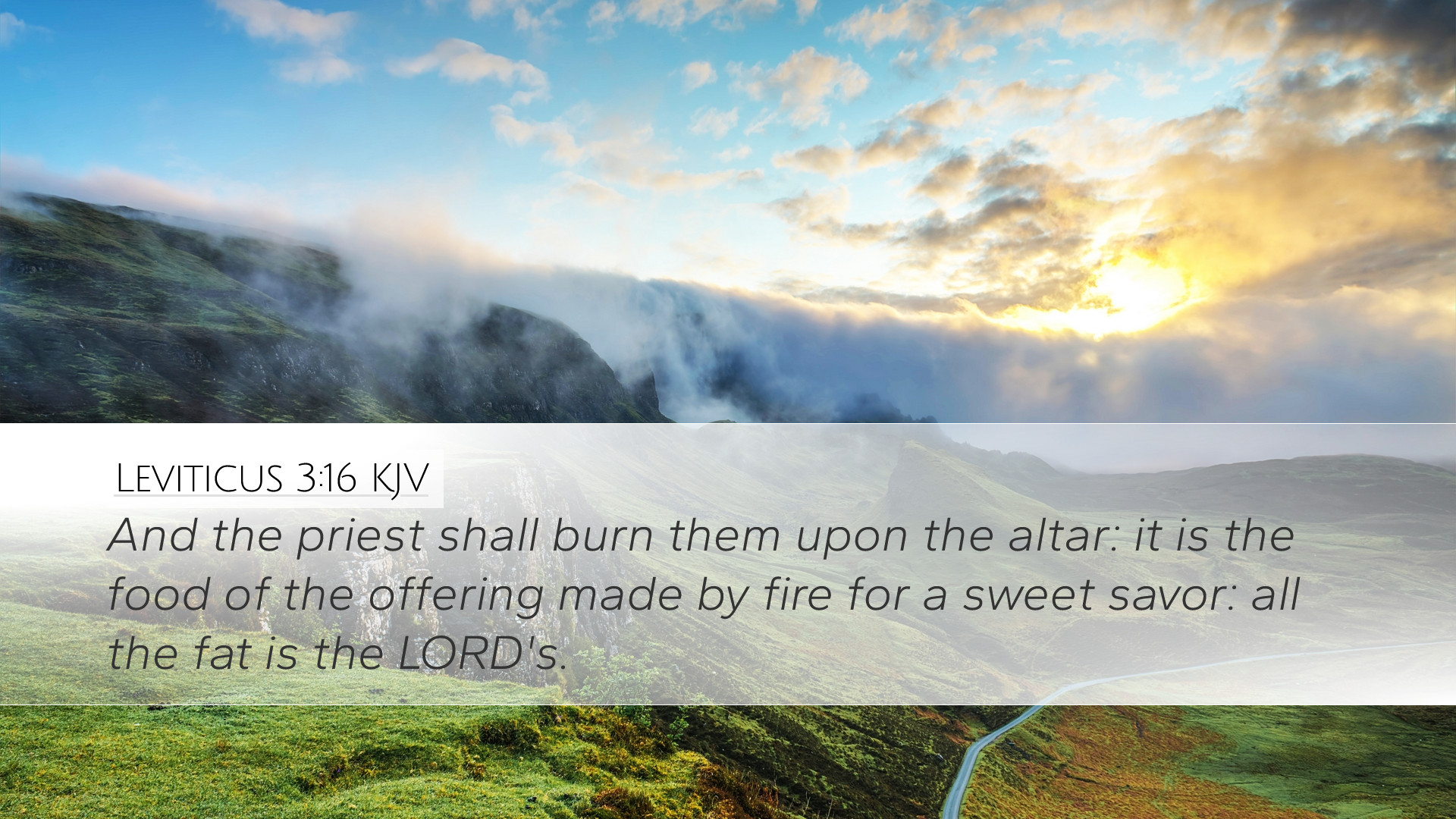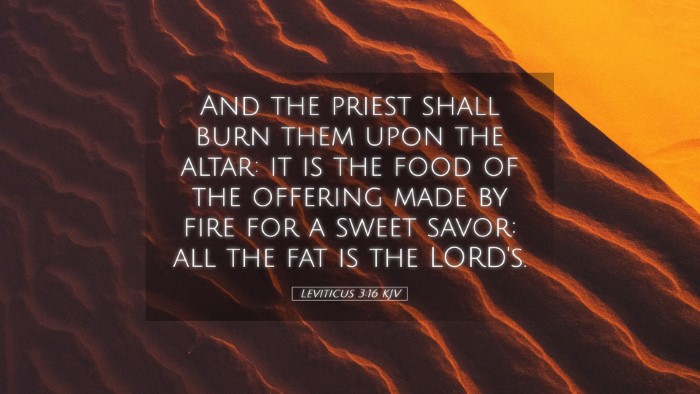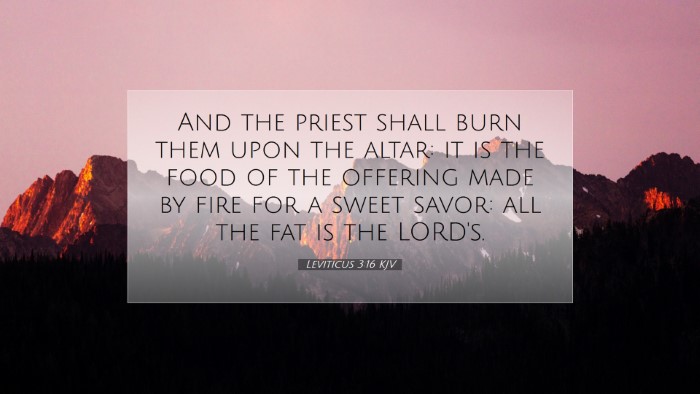Commentary on Leviticus 3:16
Leviticus 3:16 states, “And the priest shall burn them upon the altar: it is the food of the offering made by fire for a sweet savour: all the fat is the Lord's.” This verse encapsulates the profound significance of the fat in sacrificial offerings and its implications within the covenant community of Israel. The following commentary gleaned from public domain sources aims to provide a deeper understanding of this scripture, exploring its theological and practical dimensions for contemporary readers.
Theological Significance of Sacrifice
Matthew Henry highlights the overarching theme of sacrifice in Leviticus, emphasizing that animal offerings represent humanity’s need for atonement and reconciliation with God. In the context of Leviticus 3:16, the fat holds particular importance as it is considered the richest part of the animal, symbolizing the best that believers can offer unto the Lord.
“The fat is the Lord’s,” asserts Henry, indicating that it is not merely for the satisfaction of the priest or the offerer but belongs to God. This stresses the idea that the offerings made in worship should reflect quality and sincerity, which applies to both ancient and modern worship practices.
Understanding the Role of the Priest
Albert Barnes reflects on the responsibilities of the priest in handling offerings. The priest’s act of burning the fat on the altar serves as an emblematic intercession before God. The act of burning signifies the transformation of the offering into an aroma pleasing to God, often referred to as a “sweet savour.”
This phrase indicates divine acceptance of the offering, and it is crucial for worshippers to understand that their offerings, when presented with pure hearts, are not in vain. Barnes states, “The fat was considered the richest portion and thus was the part dedicated to God.” This dedicative act reflects the worshipper’s acknowledgment of God’s sovereignty and provision.
The Symbolism of Fat in Offering
Adam Clarke provides insight into the cultural context of fat offerings. In ancient Near Eastern sacrificial practices, fat was often associated with abundance and prosperity. Thus, when the Israelites presented fat portions of their sacrifices, it was not only a demonstration of honor but also an act of thanksgiving for God’s abundant blessings.
Clarke further explains, “The fat signifies the best and richest part of the sacrifice, illustrating that God desires not just offerings of any kind, but offerings that reflect a true heart of worship.” This suggests an intentionality behind offerings, advocating for a lifestyle of giving that emanates from gratitude and devotion to God.
Practical Applications for Today
The implications of Leviticus 3:16 extend beyond the ritualistic context of ancient Israel. For modern believers, this verse emphasizes the principle of giving to God from our best. It challenges each individual—pastors, students, and laypersons alike—to reflect on the quality of what they offer to God in terms of time, resources, and service.
- Quality over Quantity: Just as the fat portion was the choicest part of the sacrifice, believers are called to offer their best to God. This could manifest as dedicating one’s time, talents, and treasures for edifying the church and serving the community.
- Aromas of Worship: The concept of a “sweet savour” serves as a reminder that God delights in our worship. Worship should be sincere, joyful, and reflective of His goodness in our lives.
- Intercession: The role of the priest in the Old Testament mirrors the intercessory role of Christ today. Thus, believers are encouraged to pray and intercede for others, recognizing the power of offerings made in faith.
The Call to Holy Living
Leviticus, and specifically this verse about offerings, calls for an understanding of holiness in relationship with God. It serves as a reminder that God desires a covenantal relationship characterized by obedience, reverence, and proper worship. Matthew Henry concludes by stating, “The sacrifices of the righteous are well-pleasing to God, and it is our duty to ensure the heart is clean and intentions genuine.”
Conclusion
Leviticus 3:16 is more than a ceremonial guideline; it illustrates the essence of worship, the significance of offerings, and the relationship between God and His people. The commentaries from Matthew Henry, Albert Barnes, and Adam Clarke collectively draw out the themes of honor, quality of offerings, and the call to holiness.
As believers engage with this text, they are encouraged not only to reflect upon their sacrificial offerings but also to cultivate a lifestyle of worship that continually acknowledges God’s reign over their lives. This rich tapestry of understanding from these commentaries serves to inspire deeper engagement with scripture for spiritual growth and edification.


